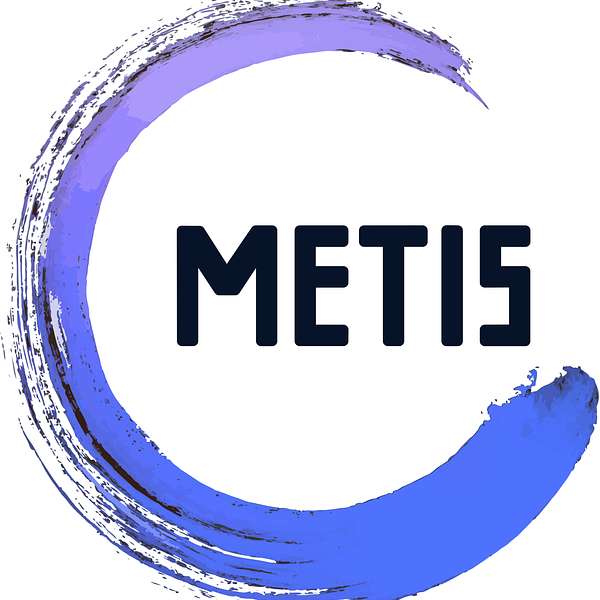
METIS Wisdom Talks at ETH Zurich
English Description (German below)
The bilingual Podcast accompanying the METIS project on intercultural wisdom literature and wisdom practices. To be found on www.metis.ethz.ch. The podcast covers the wide range of wisdom traditions, such as Daoism, the Stoa, skeptical traditions, and many more. In addition to the main currents, authors, works and topics we talk about with academic experts, we also interview people in meditation, wisdom training and other wisdom practices. Last but not least, we provide information about the methodology of the Metis Project and address your comments and critique in the "wisdom tasks". The podcasts are held in German and English. We provide German and English transcripts on our homepage. There you will also find further material in the form of essays, classics of wisdom literature and much more. The project was founded in 2022 in Zurich, Switzerland. Michael Hampe, Professor for philosophy at ETH Zurich is the initiator of the project.
Email metis@phil.gess.ethz.ch with your questions and comments.
Follow the philosophical diary of our Metis on Instagram!
German Description
Der zweisprachige Podcast, der das METIS-Projekt über interkulturelle Weisheitsliteratur und Weisheitspraktiken begleitet. Zu finden auf www.metis.ethz.ch. Der Podcast deckt das breite Spektrum der Weisheitstraditionen ab, wie z.B. den Daoismus, die Stoa, skeptische Traditionen und viele mehr. Neben den Hauptströmungen, Autoren, Werken und Themen, über die wir mit akademischen Experten sprechen, interviewen wir auch Menschen in der Meditation, im Weisheitstraining und anderen Weisheitspraktiken. Nicht zuletzt informieren wir über die Methodik des Metis-Projekts und gehen in den "Weisheitsaufgaben" auf Ihre Kommentare und Kritik ein. Die Podcasts sind in deutscher und englischer Sprache gehalten. Deutsche und englische Transkripte stellen wir auf unserer Homepage zur Verfügung. Dort finden Sie auch weiteres Material in Form von Essays, Klassikern der Weisheitsliteratur und vieles mehr. Das Projekt wurde 2022 in Zürich, Schweiz, gegründet. Michael Hampe, Professor für Philosophie an der ETH Zürich, ist der Initiator des Projekts.
Schreiben Sie eine E-Mail an metis@phil.gess.ethz.ch mit Ihren Fragen und Kommentaren.
Folgt dem philosophischen Tagebuch unserer Metis auf Instagram!
METIS Wisdom Talks at ETH Zurich
42: One worldview to rule them all - On the uses of big pictures (English podcast)
English Description (German below)
Guest: Raymond Geuss
The sages and wise writings often seem to want to tell us that we should fundamentally change our lives, that we should fundamentally change who we are. But according to which rules and ideas? Should we simply adopt their worldviews?
We spoke to Raymond Geuss about what worldviews are, about their imaginative richness and also the dangers of falling into an identity trap, so to speak, which no longer enriches us, but instead narrows our own view of the diversity of the world and of action. We can see, for example, that liberalism, which has become a world view, claims achievements for itself that do not necessarily presuppose it and, in its talk of the thoroughly informed free individual who makes wise decisions about the world, misses the social reality of people. Nevertheless, his apostles praise him as the only correct attitude towards the world.
You can find the German and the English transcript on our homepage: www.metis.ethz.ch. There we also provide further material on the topic.
Follow the philosophical diary of our Metis on Instagram!
Send us an email with questions and comments to: metis@phil.gess.ethz.ch.
This podcast was produced by Martin Münnich with the support of ETH Zurich and the Udo Keller Foundation, Forum Humanum in Hamburg.
German Desctiption
Gast: Raymond Geuss
Die Weisen und weisen Schriften scheinen uns oft sagen zu wollen, dass wir unser Leben, dass wir unsere Person grundlegend ändern sollten. Doch nach welchen Regeln und Vorstelllungen? Sollen wir einfach deren Weltanschauungen übernehmen?
Wir haben mit Raymond Geuss darüber gesprochen, was Weltanschauungen sind, über ihren imaginativen Reichtum und auch die Gefahren sozusagen in eine Identitätsfalle zu tappen, die nicht mehr bereichert, sondern den eigenen Blick auf die Vielfalt der Welt und des Handelns verengt. So kann man z.B. sehen, dass der zur Weltanschauung gewordene Liberalismus Errungenschaften für sich beansprucht, die ihn nicht notwendigerweise voraussetzen und in seiner Rede vom durchinformierten freien Individuum, das sich lebensklug durch die Welt entscheidet, an der sozialen Realität der Menschen vorbeigeht. Dennoch preisen ihn seine Apostel als die einzig richtige Einstellung zur Welt.
Das deutsche und das englische Transkript finden Sie auf unserer Homepage: www.metis.ethz.ch. Dort stellen wir auch weiteres Material zum Thema zur Verfügung.
Folgt dem philosophischen Tagebuch unserer Metis auf Instagram!
Schreiben Sie uns eine Mail mit Fragen und Kommentaren an: metis@phil.gess.ethz.ch
Dieser Podcast wurde produziert von Martin Münnich mit Unterstützung der ETH Zürich und der Udo-Keller-Stiftung, Forum Humanum in Hamburg.